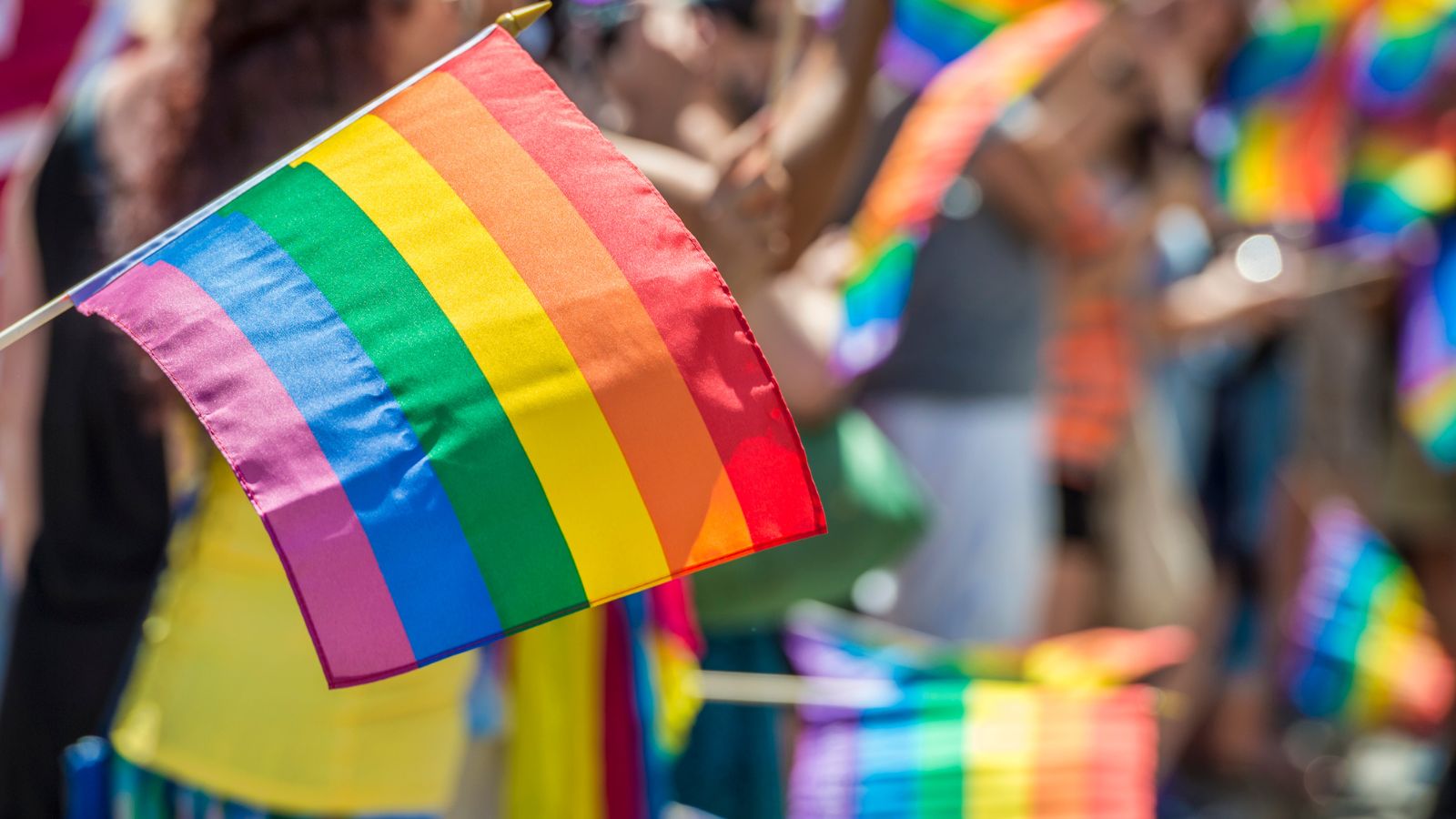The Supreme Court of the United States has made numerous decisions throughout its history that have sparked intense debates and controversy. These rulings have had a profound impact on American society, shaping the interpretation of the Constitution and defining the rights and freedoms of its citizens. In this list, we will explore 20 of the most controversial Supreme Court decisions, examining their significance and the controversies they have generated.
Dred Scott v. Sandford (1857):

Read More:These Are the Main Reasons People Don’t Trust Left Wing Media
In this landmark case, the Supreme Court held that African Americans, whether enslaved or free, were not entitled to the rights and privileges of citizenship. The decision was widely criticized for perpetuating racial inequality and further dividing the nation on the issue of slavery.
Plessy v. Ferguson (1896):

Plessy v. Ferguson upheld racial segregation under the “separate but equal” doctrine, allowing states to enforce racial segregation in public facilities. This decision institutionalized racial discrimination and provided legal justification for Jim Crow laws, deepening racial tensions and inequality in the United States.
Brown v. Board of Education (1954):

In a pivotal ruling, the Supreme Court unanimously declared that racial segregation in public schools violated the Equal Protection Clause of the Fourteenth Amendment. The decision overturned Plessy v. Ferguson and set the stage for the desegregation of schools, sparking heated opposition and resistance in many parts of the country.
Roe v. Wade (1973):

Roe v. Wade recognized a woman’s constitutional right to have an abortion, establishing a framework for abortion regulations. This decision ignited a fierce and ongoing debate between pro-choice and pro-life advocates, who continue to clash over the issue of reproductive rights.
Bush v. Gore (2000):

In the aftermath of the contested 2000 presidential election, the Supreme Court’s decision in Bush v. Gore effectively settled the election in favor of George W. Bush by stopping the recounting of votes in Florida. This decision was highly controversial, with critics arguing that it interfered with the democratic process and undermined public trust in the electoral system.
Citizens United v. FEC (2010):

In a 5-4 decision, the Supreme Court ruled that corporations and unions could spend unlimited amounts of money on independent political advertisements. This decision expanded the influence of money in politics and triggered concerns about the erosion of democratic principles and the disproportionate influence of wealthy individuals and corporations.
Obergefell v. Hodges (2015):

Obergefell v. Hodges legalized same-sex marriage nationwide, granting marriage equality to LGBTQ+ couples. While celebrated by advocates for LGBTQ+ rights, the decision faced strong opposition from religious and conservative groups who believed it undermined traditional notions of marriage.
Shelby County v. Holder (2013):

Shelby County v. Holder struck down a key provision of the Voting Rights Act of 1965, which required certain states to obtain federal approval before changing their voting laws. Critics argued that the decision weakened protections against racial discrimination in voting, while proponents maintained that the provision was outdated and unfairly targeted certain states.
Korematsu v. United States (1944):

In a highly controversial decision during World War II, the Supreme Court upheld the forced internment of Japanese Americans based on military necessity. Decades later, the ruling was widely criticized as a violation of civil liberties and a reflection of racial prejudice.
Griswold v. Connecticut (1965):

Griswold v. Connecticut recognized a constitutional right to privacy and struck down a state law that prohibited the use of contraceptives. The decision laid the foundation for subsequent rulings on reproductive rights, but it ignited a moral and religious debate over the limits of privacy and the government’s role in regulating personal choices.
United States v. Nixon (1974):

In this case, the Supreme Court ordered President Richard Nixon to release the Watergate tapes, which ultimately led to his resignation. The decision established the principle that the President is not above the law and sparked debates about the limits of executive privilege and the accountability of those in power.
Miranda v. Arizona (1966):

Miranda v. Arizona established the famous “Miranda rights” that require law enforcement to inform individuals of their right to remain silent and have an attorney present during interrogations. While the decision aimed to protect individuals’ rights, critics argue that it hampers law enforcement efforts and allows criminals to go free.
New York Times Co. v. United States (1971):

Commonly referred to as the “Pentagon Papers” case, the Supreme Court ruled in favor of the New York Times and Washington Post, allowing them to publish classified documents revealing the government’s misrepresentations about the Vietnam War. The decision bolstered the freedom of the press but raised concerns about national security and the potential harm caused by the release of classified information.
Texas v. Johnson (1989):

Texas v. Johnson held that burning the American flag as a form of political protest is protected speech under the First Amendment. The decision sparked intense debates about the limits of free expression and the symbolic significance of the flag, with many finding the act disrespectful and unpatriotic.
District of Columbia v. Heller (2008):

In a landmark Second Amendment case, the Supreme Court ruled that the Second Amendment protects an individual’s right to possess firearms for self-defense. The decision ignited passionate arguments between supporters of gun rights and advocates for stricter gun control measures, with implications for gun legislation across the country.
National Federation of Independent Business v. Sebelius (2012):

This case upheld the constitutionality of the Affordable Care Act (ACA), also known as Obamacare, including the individual mandate requiring Americans to obtain health insurance. The ruling sparked fierce debates over the scope of federal power, the role of government in healthcare, and the impact of the ACA on individuals and businesses.
Regents of the University of California v. Bakke (1978):

In a complex decision, the Supreme Court ruled that affirmative action policies in college admissions were constitutional but prohibited the use of racial quotas. The decision highlighted the ongoing debate surrounding affirmative action, with critics arguing that it perpetuates discrimination while proponents view it as a necessary tool to address historical inequalities.
McCulloch v. Maryland (1819):

McCulloch v. Maryland established the principle of implied powers, affirming the federal government’s authority to create a national bank. The decision solidified the balance of power between the states and the federal government and has been cited in numerous subsequent cases involving federal supremacy and the scope of congressional authority.
Lochner v. New York (1905):

Lochner v. New York struck down a state law that regulated the maximum working hours for bakers, asserting that it violated the due process clause of the Fourteenth Amendment. The decision reflected an era of heightened judicial activism but was criticized for impeding social progress and undermining workers’ rights.
McCulloch v. Maryland (1819):

McCulloch v. Maryland established the principle of implied powers, affirming the federal government’s authority to create a national bank. The decision solidified the balance of power between the states and the federal government and has been cited in numerous subsequent cases involving federal supremacy and the scope of congressional authority.
Final Thoughts:

The Supreme Court has played a vital role in shaping American society through its decisions, but controversy has often accompanied those landmark rulings. Whether touching on issues of civil rights, individual liberties, or the balance of power, these 20 most controversial Supreme Court decisions have left a lasting impact on the nation.

More from us:






 Tags:
Tags:










